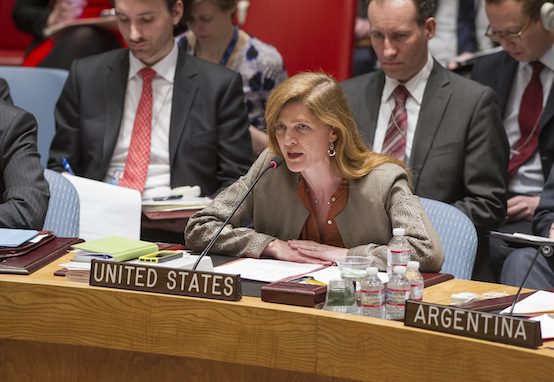Military Intervention Isn’t Humanitarian

Daniel Bessner has written a very interesting review of Samantha Power’s memoir, The Education of an Idealist. Here he focuses on her narrow thinking about “humanitarian” intervention:
If you accept Power’s premises, then humanitarian intervention boils down to a purely philosophical inquiry: Is it right to save lives if one has the capacity to do so? The answer, of course, is yes. The problem, though, is that intervention is not a thought experiment; it takes place in a world of brutal realities. In particular, humanitarian forces confront radical uncertainty. Is intervention likely to impel more violence in the long term? Do policymakers actually know enough about the situation on the ground to make the “right” decisions? Is the American public willing to commit itself to years-long reconstruction efforts? Honest answers here may not sit well with idealism. In many instances, the most moral act is not to act at all.
Can military intervention ever be humanitarian? It may be possible in theory, but as Bessner notes it doesn’t work that way in practice. “Humanitarian” interventionists want the wars they support to be judged by their intentions to save lives and not by the results of ensuing chaos, instability, and violence. Taking sides in foreign conflicts inevitably means deciding that our government should end the lives of some people that have done nothing to us because we have concluded that it is the right thing to do. That takes for granted that our government has the right to act as judge and executioner in other people’s wars simply because we have the power to affect the outcome. When we think about “humanitarian” intervention this way, we can see that it is driven by the worst kind of arrogant presumption. The first question we should ask is this: what gives us the authority to interfere in another country’s internal conflict? We should also ask ourselves what gives us the right to cast aside international law whenever we deem it necessary. Isn’t “humanitarian” intervention in practice little more than international armed vigilantism?
The Libyan war is one example of just such a “good” intervention that pretty clearly caused more harm than it prevented. It also violated most of the requirements of the “responsibility to protect” doctrine that was invoked to justify it. Like more than a few other die-hard Libyan war supporters, Power remains convinced that it was the right decision, because she doesn’t ask the questions that would force her to confront the harm that the intervention did to Libya and the surrounding region. Bessner comments:
Power never really asked these questions, because ultimately, as the historian Stephen Wertheim has argued, she considers humanitarian intervention a categorical imperative (as long as it doesn’t involve U.S. allies, of course).
That last qualification is an important one, and it gets at the heart of what is wrong with “humanitarian” interventionism in the U.S. and the West. If a government is considered to be on “our” side, it can commit war crimes with impunity, devastate whole countries, and starve tens of millions of people, and the most vocal “humanitarian” interventionists will usually have nothing to say about it. I have remarked on several occasions that “humanitarian” interventionists just ignored the catastrophe in Yemen despite the fact that it was the world’s worst man-made humanitarian disaster, and it has only been in the last year or two that any of them have spoken up about it now that it is Trump’s policy.
The most telling part of Power’s career in government was that she served as ambassador to the U.N. at a time when the U.S. was enabling and supporting the Saudi coalition war on Yemen, and as part of the administration she had nothing to say about the crimes being committed against Yemeni civilians by coalition forces with U.S. military assistance and weapons. As Bessner notes, she doesn’t have much to say about the abuses of U.S. clients in her book. She has been eager to advocate for using force against hostile or pariah regimes when they commit atrocities, but when client states use American weapons to commit the same atrocities while enjoying full U.S. backing Power didn’t so much as utter a protest. After she left government and Trump became president, Power criticized U.S. support for the war, but when she was in a position to challenge a monstrous policy from inside the administration she apparently said nothing.
Bessner observes that railing against hostile and pariah states while letting clients off the hook makes no sense if the goal is to minimize the harm to civilians:
Her approach does not make much sense from a pragmatic perspective either: U.S. officials have the highest likelihood of ending human rights abuses in countries that depend on us; there is little point in spending political capital in a mostly quixotic attempt to transform antagonists like North Korea.
Of course, it is much safer politically to denounce the states with which our government has no ties or influence, and it is much easier to remain silent about the crimes of client states that have significant clout in Washington. The point here is not just that Power failed her own test when she served in government, but that the impulse to intervene on “humanitarian” grounds amounts to agitating for war against certain governments while giving U.S. clients a free pass to commit war crimes and crimes against humanity with our government’s blessing.
Comments